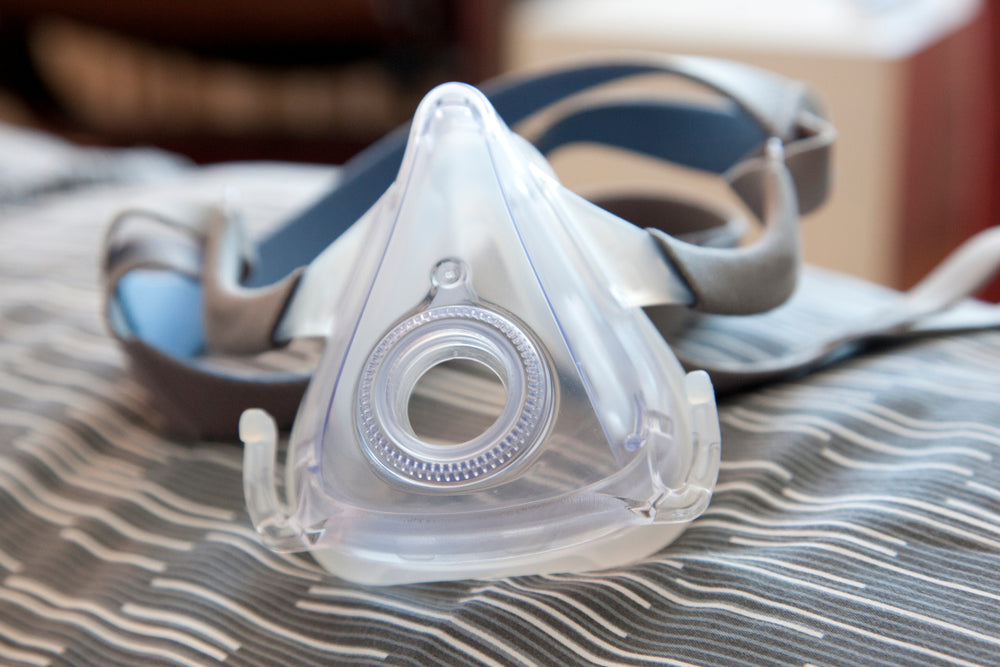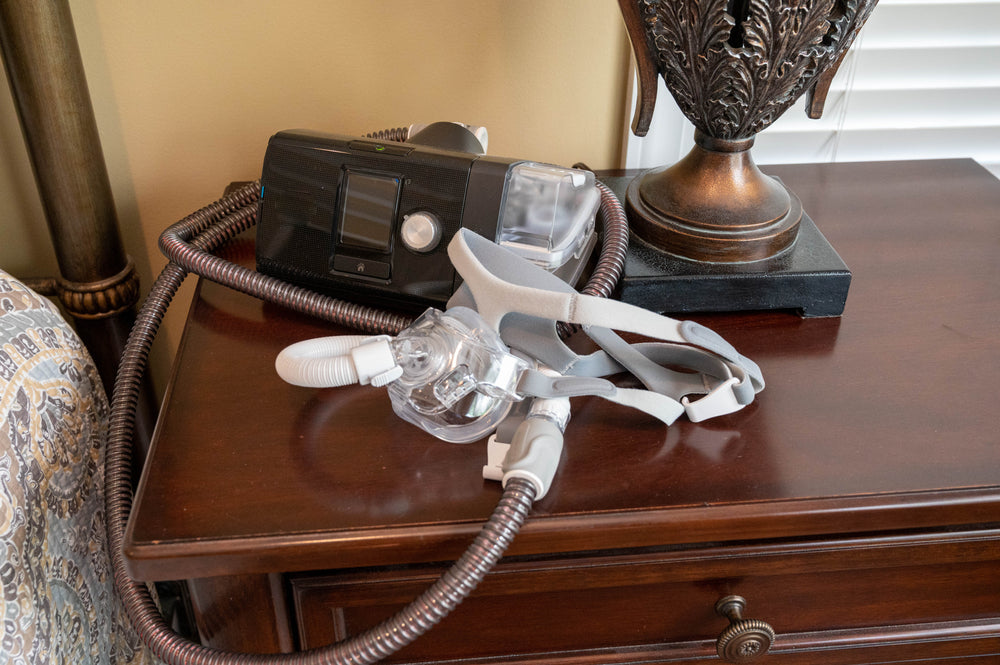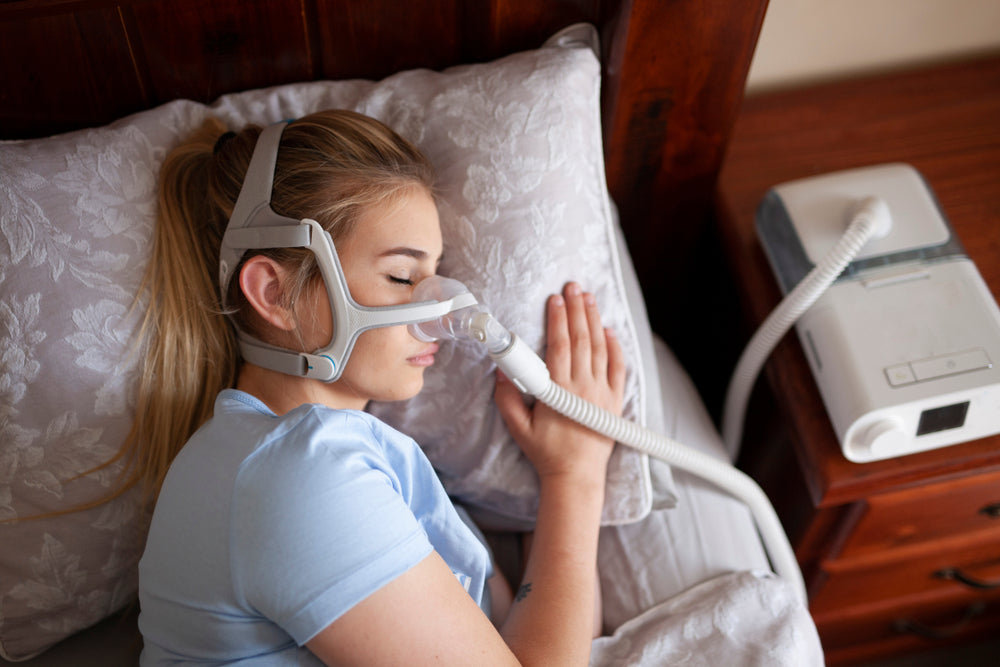Choosing the best CPAP machine—there's no such thing as a one-size-fits-all
If you suffer from obstructive sleep apnea (OSA), you may have been prescribed a CPAP machine by your doctor, or you might be doing some research for a loved one. Either way, you are in the right place to find out more about CPAP machines, their functionality, and what will be the best CPAP machine for you or your loved one.
A CPAP device is the most common and effective treatment option for sleep apnea. CPAP therapy works by pumping air through a tube and mask attachment into your airway while you sleep. This airflow stops your airway from closing during sleep and eliminates the pauses in breathing that sleep apnea causes. CPAP is a very effective treatment option, with plenty of different CPAP machines available. However, having this wide range of choices can make it tricky to decide which option is best for you, so stick with us, and we will work through some considerations before you choose.
Choose your device with care: Remember, you must wear it every night!
For a CPAP machine to deliver successful treatment, it will need to be used every night, therefore, ensuring that you choose the features that work for you is essential. For example, some users find that adding a humidifier or heating tube makes the experience more comfortable, while others don't require these features. A humidifier adds moisture to pressurised air to improve comfort and relieve throat irritation associated with CPAP. There are also various mask options, each better suited to different individuals. Depending on your face shape, facial hair, and the pressure required for your treatment, the mask you need will be different to someone else using CPAP therapy.
Mask options
CPAP machines come with a variety of mask options. A nasal pillow mask, nasal mask, or full face mask may be more comfortable for some users. Experimenting with other options may help alleviate irritation caused by your current setup. When choosing a mask, you must consider how much air pressure you require. For example, nasal pillows may not work with high air pressures. In general, the more coverage on your mask, the better the seal against leakage and the better your therapy will be. Having facial hair may also require a larger mask.

Machine options
"CPAP" is a word many people use to describe all positive airway pressure machines. However, CPAP is only one of the three available options for PAP machines used to treat sleep apnea. It is the most common type of PAP machine, but there are two other types on the market: APAP, or automatic positive airway pressure, and BiPAP, or bilevel positive airway pressure. People and their unique health needs require different types of PAP machines, so it's wise to discover which is right for you. Below we will quickly break down the difference between these three options.

CPAP (Continuous positive airway pressure)
A CPAP machine delivers a constant amount of air pressure throughout the night. The pressure can be manually adjusted if you go through any lifestyle changes (losing weight or quitting smoking, for example, may change the pressure needed); however, it does not change throughout the night. As a result, most obstructive sleep apnea patients benefit from this treatment that keeps their airways open while inhaling and exhaling. However, some people may dislike the continuous pressure, especially when exhaling, as it can be uncomfortable. In general, CPAP users adjust to this sensation over time or change the pressure settings and features to find a comfortable setting. Some users simply do not adapt; if this is the case, it may be advisable to switch to another machine.

BiPAP (Bi-level positive airway pressure)
Similar to CPAP, BiPAP treatments prevent the airway from collapsing during sleep, preventing acute respiratory failure episodes throughout the night. BiPAP machines offer two pressure levels, one for inhaling pressure and another for exhaling pressure. A BiPAP machine reduces pressure when the wearer exhales, making it more comfortable for those who previously might have struggled with a CPAP machine. BiPAP machines are usually a little more expensive than standard CPAP machines. Those who may need more breathing assistance may also benefit from BiPAP. Health professionals may prescribe BiPAP to assist patients with heart and lung diseases, such as congestive heart failure.
APAP (Automatic positive airway pressure)
Again, an APAP machine also works by keeping the user's airway open to reduce episodes of paused breathing. The difference with an APAP machine is the machine has sensors that adjust the pressure level throughout the night depending on the user's input. Each breathing cycle is adjusted by measuring a user's breath resistance, which allows it to reduce pressure during periods of stable breathing and increase pressure during breathing difficulties. This machine is more intuitive and personalised, and many people benefit from this feature a lot. However, some users find this machine more disruptive and hard to adapt to than a CPAP machine. APAP is not advised for some patients with heart or breathing conditions; so make sure you speak to an expert to see if this machine will suit your needs.
Bestsellers: The run-down
Standard CPAP Machine: ResMed AirSense 10 Elite CPAP Machine
ResMed AirSense 10 Elite has advanced features such as:
- For enhanced patient comfort, AutoRampTM with sleep onset detection delivers low pressure. Upon falling asleep, the pressure gradually increases to the prescribed level.
- The Easy-Breathe motor is whisper-quiet, allowing you and your bed partner to sleep in peace.
- Built-in ambient light sensor. Depending on the brightness of the room, the screen's light level adjusts. During the night, when you need to get up, the screen's backlight won't disturb your partner.
- HumidAir™ humidifier provides consistent humidification throughout the night for enhanced comfort. If you prefer, you can add an optional ClimateLineAir™ heated tube to experience ultimate comfort and climate control technology.
- As soon as you breathe into your mask, The SmartStart™ function begins your sleep apnea therapy. A few seconds after you remove your mask, it stops automatically.
APAP machine: ResMed AirSense 10 AutoSet CPAP Machine
Among the advanced features of the ResMed AirSense 10 AutoSet device some great ones are:
- Intelligent Detection. Using AutoRamp™with sleep onset detection, the patient is provided with low pressure for increased comfort. As you sleep, the pressure gradually increases to the prescribed level.
- The SmartStart™ function activates sleep apnea therapy when you inhale into the mask. After removing your mask, it will stop. (it may take a few seconds)
- Built-in ambient light sensor. Depending on the brightness of the room, the screen's brightness adjusts with it. During therapy, your bed partner won't be disturbed by the screen's backlight.
- The Easy-Breathe motor is very quiet, allowing you and your bed partner to sleep more comfortably and peacefully.
- Comfort is guaranteed with consistent humidification throughout the night via the integrated HumidAir™ humidifier. The optional ClimateLineAir™ heated tube provides ultimate comfort and climate control technology.
BiPAP Machine: ResMed AirCurve10 CS PaceWave ASV
This machine features some of the following advanced features:
- With Easy-Breathe, the pressure waveform mimics the wave shape of your normal breathing in order to improve your comfort.
- ASVAuto mode, which adapts to your breathing stability needs on a breath-by-breath basis.
- Using ASV mode, you can manually adjust your EPAP (Expiratory Positive Airway Pressure) to maintain an open upper airway.
- A continuous leak management system ensures reliable delivery of therapy pressure while maintaining synchronisation between the patient and the device.
- Climate Control is made up of the HumidAir™ humidifier and the ClimateLineAir™ heated air tube. This is designed to deliver constant, comfortable temperature and humidity.
If in doubt: Come and speak to the experts
In-store, we can run through everything face-to-face if you need help determining the right product for your needs. As a result, your machine will remain comfortable for years to come. With the proper treatment, obstructive sleep apnea is highly treatable. An appropriate plan of treatment can reduce the symptoms of sleep apnea and prevent serious health problems associated with it. You should be on top of your treatment and find a comfortable solution that works for you. When you make an appointment in-store, we'll arrange for you to speak with a sleep expert, ensuring you're in good hands.
